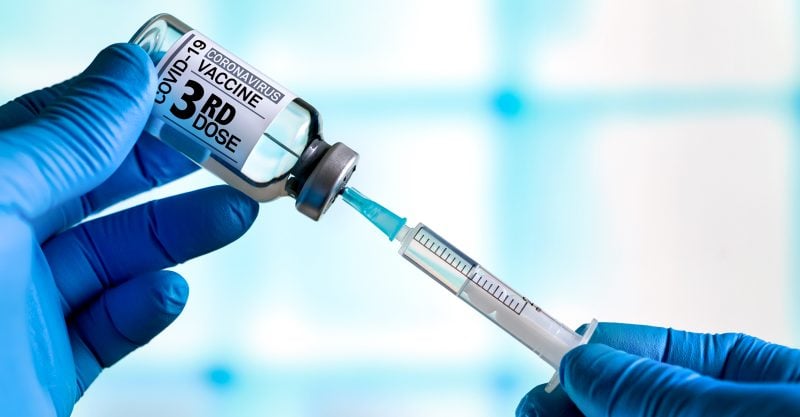Miss a day, miss a lot. Subscribe to The Defender's Top News of the Day. It's free.
Following an intense daylong public discussion, a panel of scientific advisors to the U.S. Food and Drug Administration (FDA) today voted 16 to 2 against recommending a third shot of Pfizer’s COVID vaccine for people 16 and older.
The vote came after a sharp debate in which many of the panel’s independent experts, including infectious disease doctors and statisticians, challenged whether the data justified a broad rollout of extra shots when the vaccines appear to still offer robust protection against severe COVID-19 disease and hospitalization, at least in the U.S., the New York Times reported.
“It’s unclear that everyone needs to be boosted, other than a subset of the population that clearly would be at high risk for serious disease,” said Dr. Michael G. Kurilla, a committee member and official at the National Institutes of Health.
In a second vote, the panel voted unanimously in favor of recommending Pfizer’s third dose for people with compromised immune systems and/or people over age 65.
The issue of whether or not to approve boosters has become increasingly contentious, dividing scientists, both outside and inside the FDA, including two scientists who recently announced they are leaving the agency because of pressure from the Biden administration to approve boosters, despite the lack of data to support a third shot.
The Biden administration had hoped the FDA would approve a third shot of the Pfizer vaccine in time to begin rolling out boosters for Pfizer recipients next week.
“It’s a welcome sight to see actual deliberations in meetings about vaccine booster shots at the FDA,” said Mary Holland, president of Children’s Health Defense. “It’s encouraging that a panel of experts stood up to political and corporate pressure based on the lack of convincing data for safety and efficacy of boosters.”
Holland added:
“One can only hope the FDA and Centers for Disease Control and Prevention panels will continue to engage in vigorous debate about vaccine science and medicine.”
As The Hill reported, the advisory panel’s vote is not binding, so the FDA doesn’t have to accept the results. But if the agency doesn’t, it will raise significant questions of political interference and pit agency scientists against political officials who signed off on the booster plan.
In an unusual move last month, Biden and top health officials, including Surgeon General Vivek Murthy, acting FDA Commissioner Dr. Janet Woodcock and CDC Director Dr. Rochelle Walensky, publicly announced a booster shot program would begin the week of Sept. 20, well before the FDA and CDC examined the evidence.
On Thursday, FDA scientists had expressed skepticism about the need for Pfizer COVID vaccine booster shots in a report released Wednesday.
In the 23-page report, FDA officials said that based on their analysis of data submitted by Pfizer and BioNTech, they could not yet take a stance on whether to recommend COVID boosters for the general public.
The 23-page report analyzed data submitted by Pfizer and BioNTech as part of the drugmakers’ request for authorization for their vaccine to be given as a booster shot in people 16 years and older.
UPDATE: This article was updated to include results from the FDA panel’s second vote on Sept. 17, in favor of recommending a third Pfizer shot for people with compromised immune systems and/or people age 65 or older.







